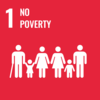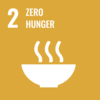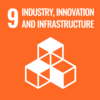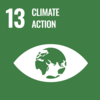The aim of the project was to convert macadamia waste into valuable products. This was achieved by designing and manufacturing a husk and shell processor that crushes both the husks and the shells into small particles. The small particles of the husks are a very effective organic fertiliser. Not only is it a cheap and rich fertiliser, but it also increases the carbon stocks in soils.
About 750 ton of carbon can be added to the soil per year when the husks are used as fertiliser. The shells are made into briquettes that will substitute the use of firewood. The use of briquettes will reduce the negative effects of deforestation. More than 2.2ha of forest area will be saved per year by the use of briquettes and 643.5 tons of CO2 equivalent is avoided every year. Forests are important for their role through bio-sequestration where they convert carbon dioxide into plant tissue. The overall cost of the project is US$20182.00



